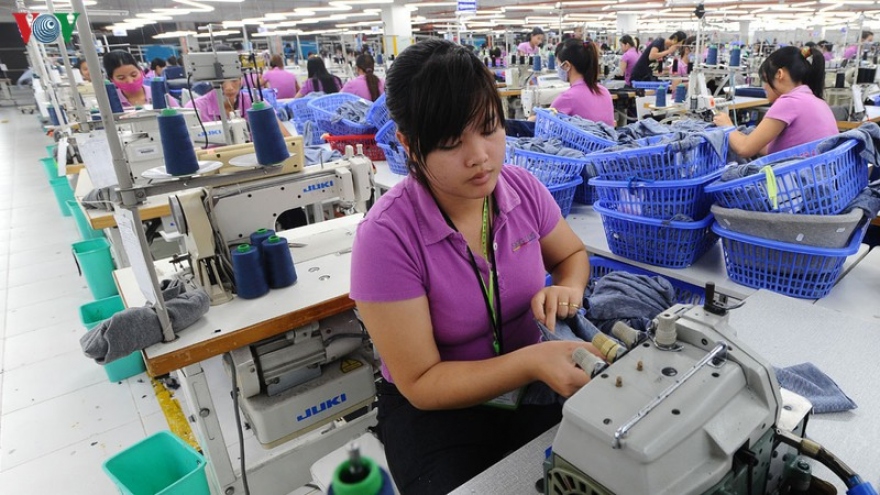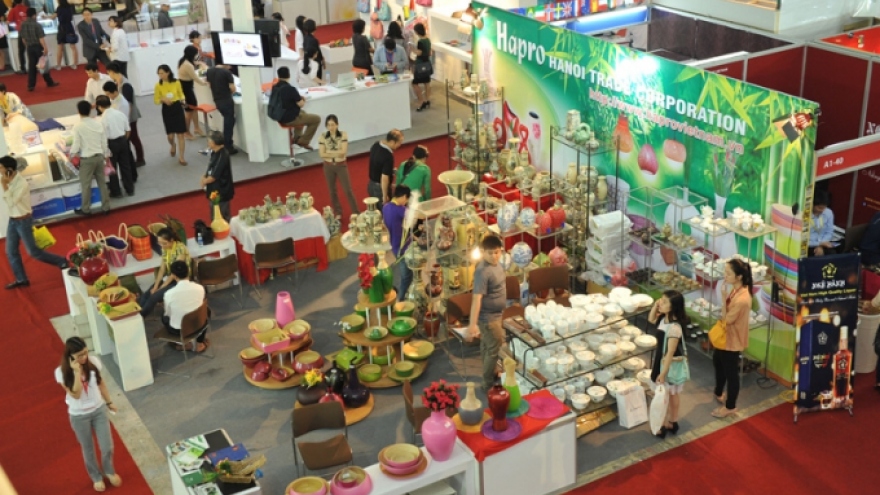Vietnam faces challenges in implementing new generation FTAs
Labor force quality is still a main obstacle for Vietnam to overcome.
 |
| 85% of firms in Vietnam are facing difficulties finding skilled workers and managers. |
The enforcement of new generation free trade agreements has required Vietnam to overcome several obstacles, especially sub-standard labor force quality, to enable it optimize huge potential of the deals, experts said.
New generation FTAs, including the EU-Vietnam Free Trade Agreement (EVFTA), offer many opportunities for Vietnamese workers and just as many challenges.
The EVFTA alone is expected to create between 18,000 to 19,000 jobs each year for the next ten years, with the majority of jobs in textile, footwear and furniture manufacturing as tariffs are set to be lifted for Vietnamese products exported to the EU market.
However, the country’s labor force must find ways to improve its skills in order to manufacture products that adhere to stricter standards in European markets.
Vu Tien Loc, President of the Vietnam Chamber of Commerce and Industry, admitted that Vietnam’s labor force quality still leaves much to be desired.
He cited a recent VCCI survey, saying that 85% of businesses in the country are facing difficulties finding skilled workers and managers. A lack of qualified workers has discouraged high-tech companies to make heavy investments in Vietnam.
In addition, companies will have to implement a number of changes to their current labor policies to meet the EVFTA’s labor standards, such as making commitments to ensure workers’ rights to collective bargaining, eliminate forced and child labor as well as workplace discrimination.
According to Nguyen Hai Minh, Vice Chairman of EuroCham Vietnam, labor force quality is still a main obstacle for Vietnam to overcome. European firms require from employees both technical and language proficiency and they are hoping to see such demands addressed by the government.
Minh said most European firms rely on technologies and therefore place great emphasis on employing skilled workers instead of cheap labor. Industry 4.0 has already replaced many low-skilled repetitive roles with automation and robotics. Multinational companies now need the cleverest employees to compete and succeed globally.
Therefore, reacting to the huge potential of new generation FTAs, Vietnam needs to work on efficiency and productivity if it wants to attract more foreign investors. Now is the era of a highly-skilled and knowledgeable workforce, not a low-cost workforce as in the past.
Sharing the same view, Simon Matthews, Country Manager of Vietnam, Thailand and the Middle East under US-based staffing firm ManpowerGroup, said that the EVFTA is an opportunity for the Vietnamese labor force to grow but they must be equipped with the right skills to take advantage of such opportunities.
Top priority
Developing a highly-qualified labor force is a top priority for Vietnam in the country's effort to integrate into the global economy, Matthews said, urging firms to start building human resource strategies to train and retain skilled workers.
To improve the country’s human resource, the Ministry of Labor, War Invalids and Social Affairs has signed a memorandum of understanding (MoU) with ManpowerGroup in developing a skilled workforce and effective regulatory frameworks for the digital age.
Under the MoU, between 2018 and 2021, the cooperation will focus on raising awareness of labor trends, employment and workforce development in the 4.0 Industrial Revolution.
Other focuses include sharing the experiences of international markets and enhancing Vietnam’s efforts to collaborate with other countries on labor, employment and human resource development.
Besides, ManpowerGroup will also help Vietnam develop skilled talent by improving the knowledge and professional experience of the local workforce and enabling them to adapt to automation and digitization.
It will also provide information, analyses, and orientations on the labor market, as well as support to improve the market infrastructure.



